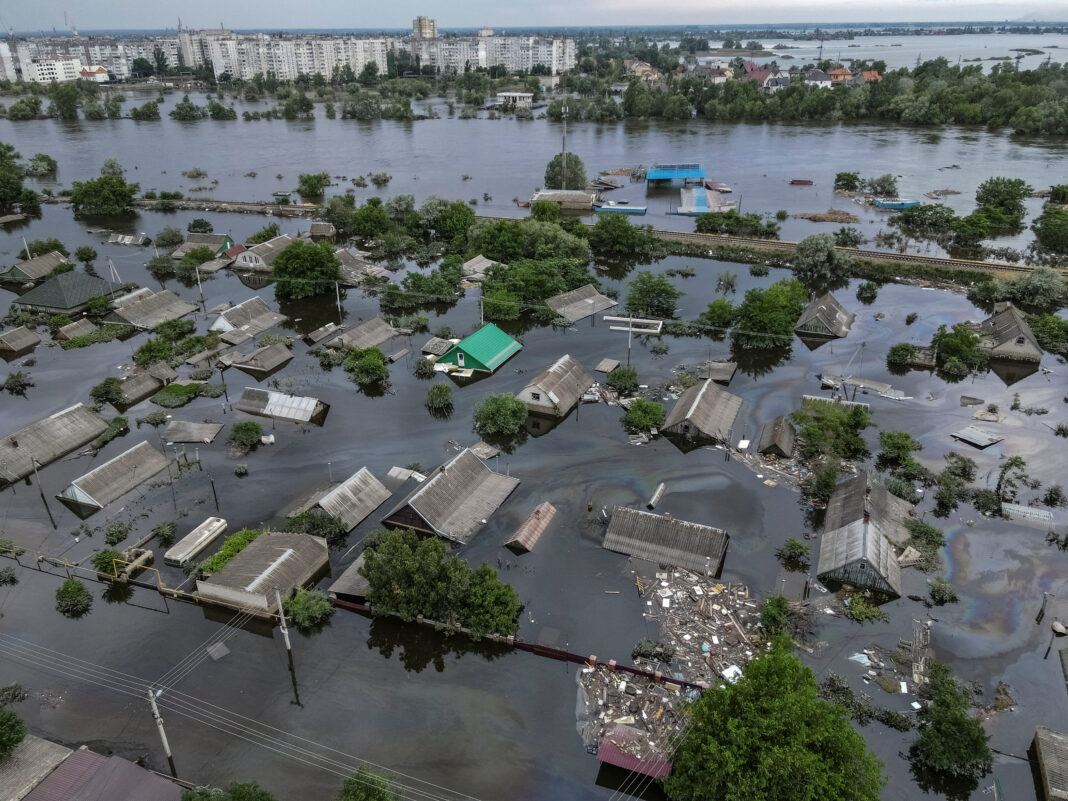The major Khakovka dam has been destroyed at the beginning of June. Not only water will become scarce for agriculture but the incident will also affect the maintenance of the nuclear power station of Zaporizhria situated nearby.The major Khakovka dam situated in the southern region of Ukraine has been destroyed at the beginning of this month. While debates are still taking place with regards to the spark that led to its breach, consequences can already be felt in the area and, are likely to remain relevant for years to come.
What are the causes of the destruction?
The causes that led to the collapse of the Khakovka dam are still unknown. The Ukranian government has accused the Russians of destroying it with the aim of weakening the opposition. According to the Ukranian government, in fact, Moscow feared that the road over the dam would be used for the transportation of troops for the war.
On the other hand, the Russian government has blamed the Ukrainians arguing that they sabotaged themselves to negate the Crimean Peninsula, a territory that was annexed to Russia in 2014, access to this critical source of water.
While the first reaction of both sides has been that of blaming the adversary of attacking the dam to gain an advantage in the conflict, neither side has presented concrete proof of the involvement of the opposition in the incident. This has rendered it difficult to fully grasp the reason behind the collapse of the dam.
Alternative hypotheses have been advanced by researchers. An example is the explanation provided by Mulligan (professor of Geography at University College London) who has claimed that this was the result of the numerous damages provoked by the Russo-Ukrainian war in the nearby area. This can be demonstrated by the unusual and excessive flow of water that has been witnessed through the dam recently, which could be linked to damages to the structure.
What are the consequences of the incident?
A week has now passed since the destruction of the Khakovka’s dam. While the impact of the collapse is still not certain, the severity of the situation has been long clear. Many believe that the flooding will have long-term consequences on the economy, territory and people of the area.
The Khakovka dam, in fact, which was built under the Soviet Union, used to hold back a huge reservoir, which was even called “Khakovka sea” due to its significant size and volume of water.
The consequences that can be imagined following the floodings are several. The main concerns are regarding the natural environment that surrounds the area, the contamination of water from chemicals and the disappearance of a crucial source of water for nearby regions.
Many remarks have been made, defining the incident an “ecocide” and a war crime. The Ukrainian president has expressed a similar view, defining it an “environmental bomb of mass destruction”. This is due to the significant danger that the flooding is expected to represent for the surrounding wildlife and the wellbeing of its inhabitants, who have been forced to flee their homes looking for safer accommodations.
The contamination of water is a further serious problem. The Dnieper River, in fact, has been contaminated with 150 tonnes of industrial lubricant, making the water unusable and a source of danger for those who inhabit the nearby area. The contamination of the water, moreover, means that the number of fishes in it will undoubtedly diminish and this will become unsuitable for agriculture. The consequences are a diminished production of food, which is a crucial problem for a region that is already suffering from shortages caused by the conflict.
Finally, a further effect that ought to be considered is the impact that the disappearance of this crucial source of water will have on the area. Not only will it become scarce for agriculture but also, affect the maintenance of the nuclear power station situated nearby. The nuclear power station of Zaporizhria, in fact, made use of this source of water to maintain its cool temperature. While the threat is not immediate due to the presence of an alternative source in the region, this substitution will only be temporary and alternative solutions will have to be found immediately to avoid a nuclear catastrophe.
The causes that led to the collapse of the Khakovka dam are still unknown. The Ukranian government has accused the Russians of destroying it with the aim of weakening the opposition. According to the Ukranian government, in fact, Moscow feared that the road over the dam would be used for the transportation of troops for the war.
On the other hand, the Russian government has blamed the Ukrainians arguing that they sabotaged themselves to negate the Crimean Peninsula, a territory that was annexed to Russia in 2014, access to this critical source of water.




